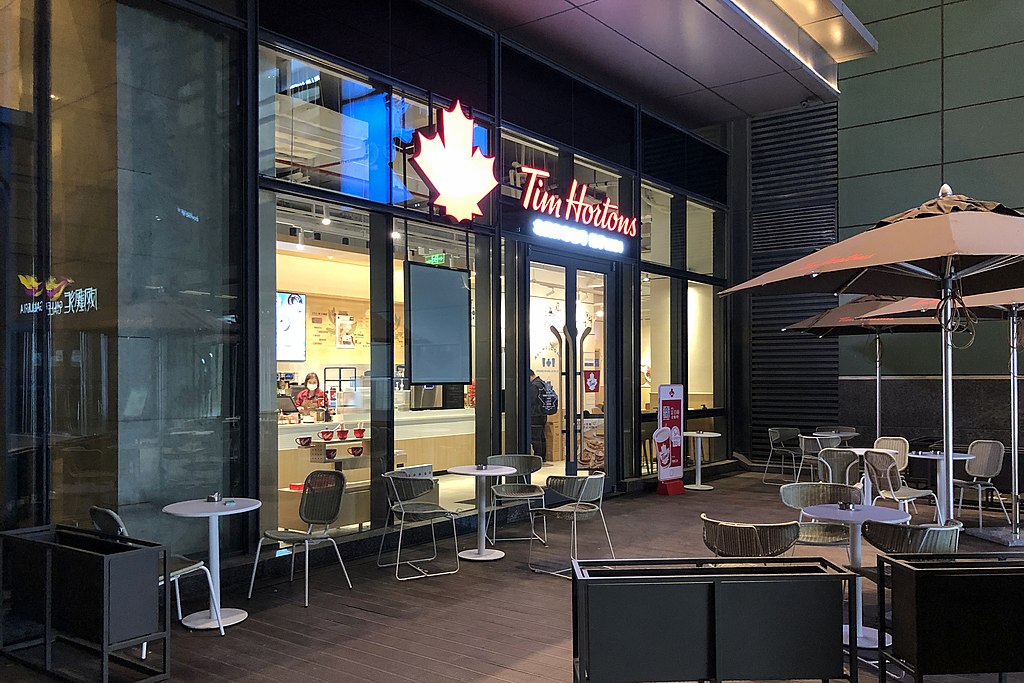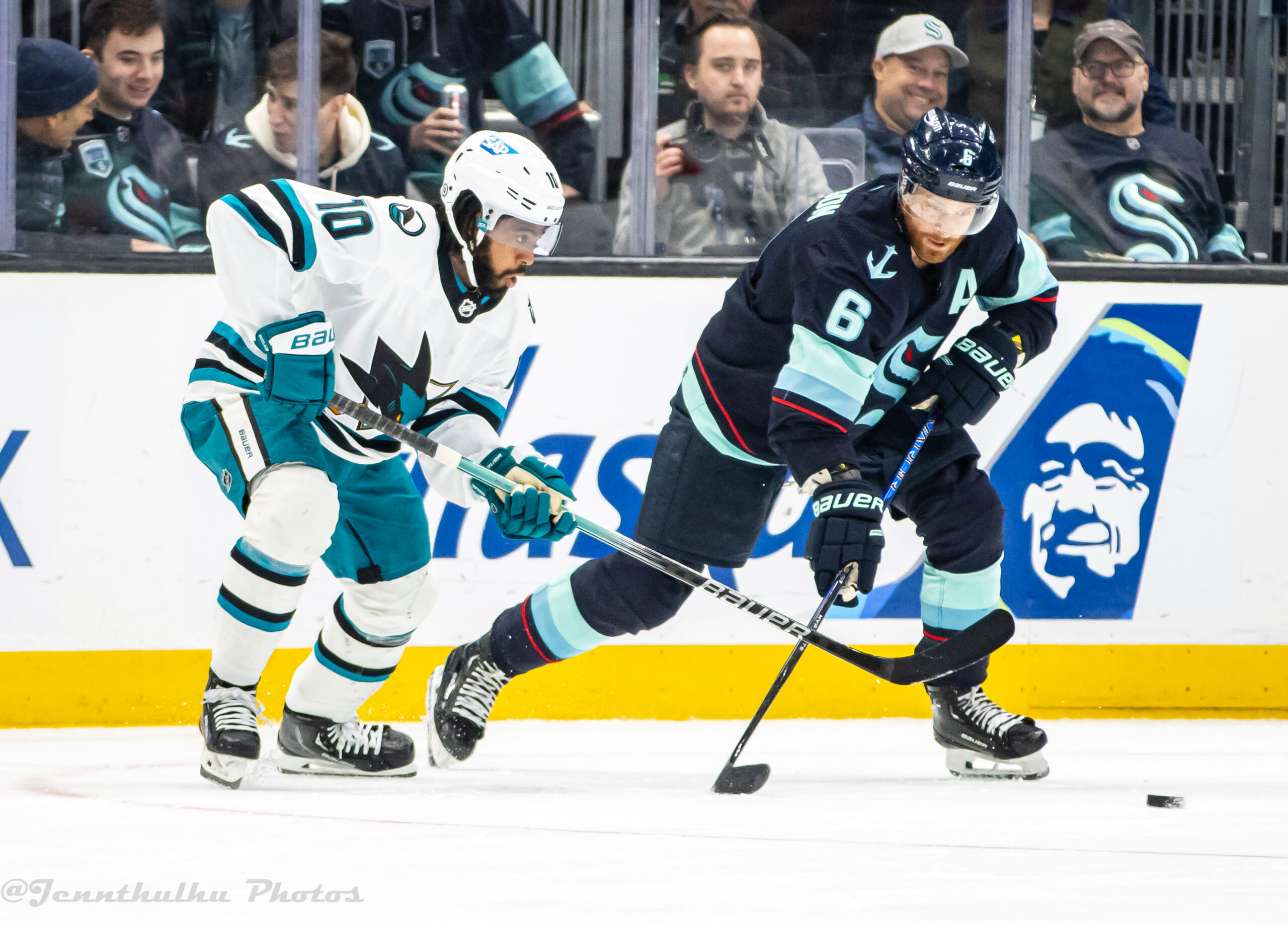By Alec Roberson
Every hockey player wants to grow up and play in the NHL. To most this is a dream that could provide a paycheck to set you up for life. However, given how short an average NHLer’s career lasts, what happens after hockey? Or to ask another question, are NHL players limited to just playing hockey? Many players don’t even want to think about what life outside of playing hockey might look like. But……it’s coming. By looking at a few different stories of current and ex-NHL players, we are given the benefit of seeing how various individuals found success and fulfillment outside of playing hockey through entrepreneurship.
The Side Hustles
The first category is current NHL players that have side businesses. Exploring other passions through entrepreneurship can be a great way for players to invest in something they care about, get a mental break from the game (although starting your own business may not always be a great “break”), and potentially build something to provide for the future long term.
1. Calvin de Haan
Let’s start first with a current NHL player – Calvin de Haan of the Chicago Blackhawks. Calvin de Haan was a first round draft pick of the NY Islanders in 2009. After signing a deal with the Carolina Hurricanes in 2018, the Hurricanes traded him to the Blackhawks almost a year later. Calvin de Haan is a very solid defenseman and makes a decent salary at around $4.5 million per year.
That salary is enough for most of us to live on comfortably. Likely, de Haan is saving a portion of his salary in different retirement and investment accounts to have a nest egg to retire on. The NHL also provides a pension to players based on a formula that includes how many years they have played. (If you haven’t yet, check out our article about the NHL’s pension plan here). But this isn’t an article about passively investing for the future in stocks, bonds, ETFs, mutual funds, etc.
Calvin de Haan also decided to invest his money and energy into another venture. This venture is one that is more of a “passion” of his. That is Ridge Rock Brewing Company, a brewery and restaurant. Ridge Rock Brewing Company is the creation of de Haan and three of his friends. It is located in a revitalized late 1800’s building in his hometown of Carp, Ontario (a rural community in Ottawa). While de Haan was not versed in craft beer before Ridge Rock Brewing, this business was truly one of he and his friends investing in his home community.
Not every investment has to have the highest possible ROI from a financial standpoint. Sometimes the joy of exploring a passion or revitalizing a community can be an ROI worth pursuing. Calvin de Haan has shown that. With Ridge Rock Brewing’s success so far, de Haan could have this project for many years after playing hockey.
2. Ryan Reaves
Like de Haan, Ryan Reaves of the New York Rangers has invested in the creation of a brewery. That brewery is 7Five Brewing Company in Las Vegas. 7Five Brewing, named after the only number Reaves has ever worn in his hockey career, is a joint project between Reaves and Able Baker Brewing Company.
The Company is based out of Las Vegas. However, even though Vegas traded Reaves to the Rangers, co-founder Adam Coates explained that Reaves is committed to investing in Las Vegas. This project allows Reaves to invest into a passion of his and into a city that he is committed to. While there may be plans to potentially expand into other markets (including New York), building the brand on Reaves as a hockey player is central to the Company’s success and direction. Like de Haan, after Reaves’ hockey career is over this should be a project he can focus on for many years.
3. Tomas Tatar
Hockey players also explore other passions and opportunities such as Tomas Tatar’s clothing line. Currently a member of the New Jersey Devils, Tatar started a clothing line in 2015 while playing for Detroit. Tatar expressed that while hockey was his first focus, he always wanted to be a designer. In order to explore that passion, Tatar partnered with Michigan based PUCK HCKY to develop a clothing line. That clothing line utilizes some of Tatar’s creativity in collaboration with professional designers. This allowed for more of a novelty clothing line that still incorporated hockey unlike team or league generated clothing.
While the clothing line was started as more of a hobby, Tatar expressed that it was something he would like to give strong consideration to long term. As is so important for hockey players due to a relatively short playing career, venturing into entrepreneurship while playing can give a head start into a fulfilling post hockey career. It is important to note that former Red Wings Henrik Zetterberg and Dominik Hasek also ventured into the clothing line arena.
The Post Playing Establishments
Sometimes, ex-NHL players want to continue working after their (normally relatively short) playing career. Whether it is to explore other passions, realizing that money may not last forever, or simply to avoid boredom, ex-NHLers routinely find their way into entrepreneurship. While it is very common to see them go into hockey itself in some fashion, others pursue entrepreneurship.
1. Stew Gavin
One of those is Stew Gavin. An alumni of the Toronto Maple Leafs, Hartford Whalers and Minnesota North Stars, Gavin knew that he wanted to serve other members of the sport. He also knew the longevity of playing in the NHL is nothing guaranteed. After gaining experience and obtaining many financial based certifications, Gavin started Gavin Hockey Wealth Specialists with Matthew Bacchiochi. Gavin Hockey Wealth Specialists is an independent financial advising firm focusing on hockey players including current and ex-NHLers.
We have seen the horror stories of many athletes losing everything they have earned quickly. Gavin’s passion for financial wellness for hockey players is an invaluable resource for players. Having the financial knowledge and experience mixed with the personal experience of playing in the world’s best hockey league gives Gavin and his team a strong advantage in servicing the financial needs of hockey players. In the summer of 2021, Gavin Hockey Wealth Specialists was acquired by the New York based Focus Financial Partners Inc., but still operates its own day to day management to service hockey players’ financial needs.
2. Tim Horton
Tim Horton’s may be one of the most successful food service businesses created by an NHL player. While Tim Horton’s was started by Tim Horton when he was still playing in the NHL, most of its success was found after his career. For those who are not familiar, Tim Horton’s is a Canadian based fast food restaurant that serves coffee, donuts and other fast food items similar to a Wawa or Sheetz. It is truly Canada’s premier fast food establishment and easily Canada’s largest fast food chain. The establishment even claims to sell eight out of every ten cups of coffee sold in Canada.
Tim Horton was an NHL player who played mostly for the Toronto Maple Leafs through most of the 50’s and 60’s. While Horton was a great player who helped the Leafs win a few Stanley Cups, Tim Horton’s contributed largely to his fame. Horton opened the first Tim Horton’s as a donut shop in Hamilton, Ontario in 1964 with Jim Charade. Charade left the organization and Horton partnered with Canadian investor Ron Joyce in the 60’s. Tim Horton’s started to take off. In 1974, Tim Horton’s had many locations and was a growing establishment. Unfortunately, Horton passed away in 1974 before Tim Horton’s became the Canadian juggernaut it is today.
After Horton passed away, Joyce bought out Horton’s family for sole control of the Company and the Company exploded for the next few decades. In 2018, Burger King merged with Tim Hortons in what is known as a “tax inversion deal” as Burger King moved its headquarters to Canada. While that merger specifically has had questionable success at best, it is no doubt that Tim Horton’s has grown immensely from that single donut shop in Hamilton, Ontario in 1964. As is typical with a lot of business ventures, Horton had assistance in establishing and growing Tim Horton’s. However, his entrepreneurial spirit and desire to venture into the quick serve restaurant business outside of playing in the NHL helped lead the spark for one of Canada’s top restaurant establishments that has expanded even beyond its original Canadian borders.
Resources for NHLers
Life after hockey is something that not every hockey player does or even wants to think about. They spend their entire lives focusing on making it to the NHL and then, when there, being the best player they can and winning. While the examples above show players finding success in other ventures, many struggle after retirement. What do they do? Where do they go? Some have college degrees but a lot don’t. And even outside of formal education or experience, mentally it is hard for players to make such a transition.
1. The NHL Alumni Association’s Breakaway Program
To combat this issue, the NHL and NHLPA teamed up to create the NHL Alumni Association’s Breakaway Program (formerly known as the Life After Hockey Program). This program offers a service to NHL players that provides education and career strategy, counseling, entrepreneurial training, seminars and other assistance. The NHL’s Emergency Assistance Fund (which players’ fines and suspensions support) finances this program. It supports numerous former NHL players but aims to support even more.
Daniel Carcillo has worked with the Breakaway Program to create the “Chapter 5 Foundation” in an effort to further support and help players transitioning away from their hockey careers. As a player that had to go through that process, Carcillo is looking to help players as early as possible while they are still playing.
2. Outside Assistance
While it is great that the Breakaway Program and organizations such as the Chapter 5 Foundation exist to assist players transition after hockey, players’ agents, financial advisors, attorneys etc. should also be advising them on the importance of focusing on life after hockey. As was evident by the players’ push for a defined benefit retirement plan in the 2012 CBA negotiations, the trend seems to be that more players are focusing on financial stability after hockey. (If you have not had a chance yet, check out our article on those negotiations here.) However, most hockey players have an ingrained spirit of competition that leaves them wanting more than just a paycheck. Being an entrepreneur can help fulfill that desire.
Conclusion
This list of hockey entrepreneurs is non-exhaustive by any means. Nor does this article intended to list all of the businesses or projects of every single hockey player entrepreneur. There are tons of examples of ex-NHLers, current NHLers, and even players that didn’t quite make it to the NHL exploring other passions and opportunities outside of hockey. This article just shows that the options are unlimited. It also shows how important it is for hockey players to keep an open mind for life outside of hockey given the relatively short playing careers and need for continued competition.
Post image attribution: By: N509FZ, CC BY-SA 4.0 https://creativecommons.org/licenses/by-sa/4.0, via Wikimedia Commons




